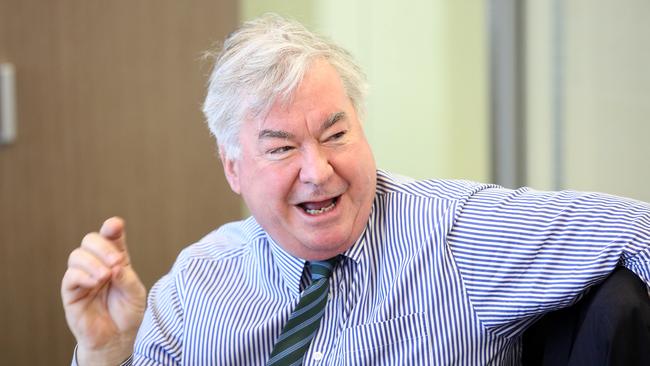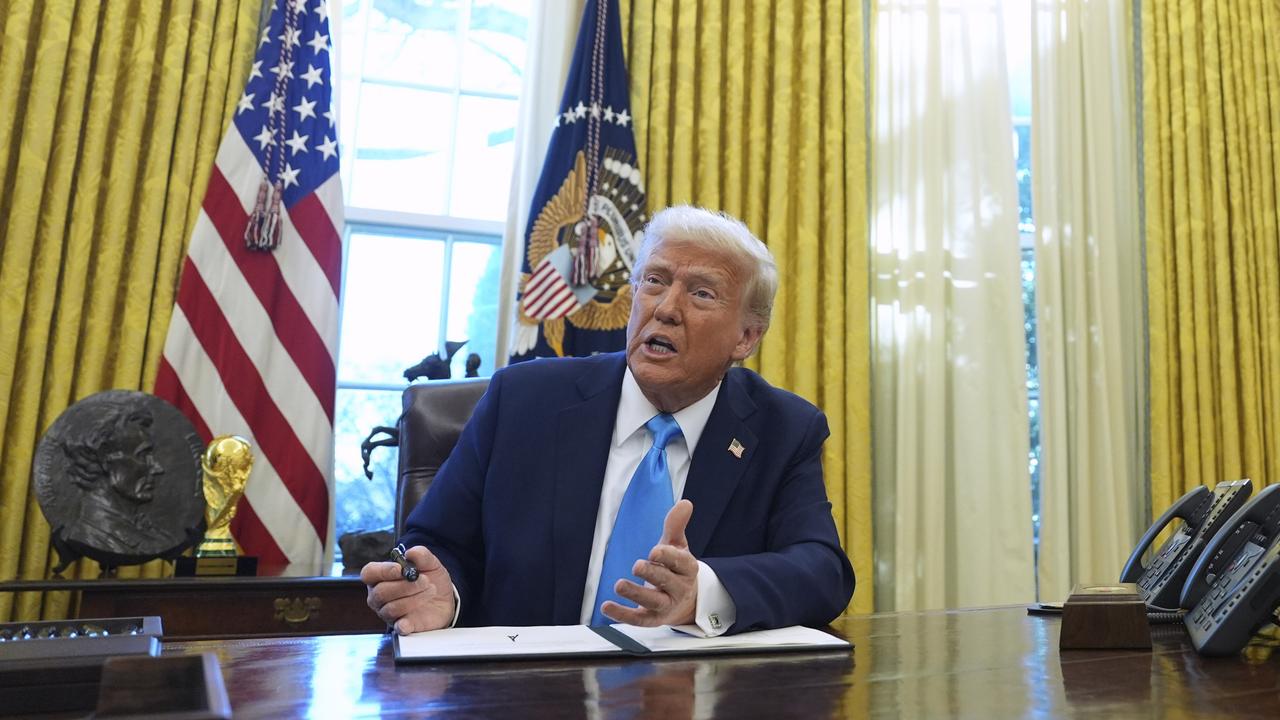Health insurers call for radical surgery to fix a sick system
Australia’s top health insurers have put aside competitive rivalries to unite to push for healthcare reform.

Australia’s top health insurers have put aside competitive rivalries to unite to push for healthcare reform, warning regulation is fuelling perverse incentives in the system and adding to affordability pressures.
The sector’s leaders, covering about 80 per cent of insured Australians, debated industry issues at a roundtable discussion hosted by The Australian, as pressure on the sector intensifies with consumers ditching cover because of affordability concerns.
Private Healthcare Australia’s chairman, and HBF’s recent managing director, Rob Bransby said insurers didn’t have too many levers left to pull to address affordability concerns.
“We have probably pulled all those levers (available to us) and it’s now time for a massive change and it will take a collaborative effort from the entire sector to turn this on its head and do this a different way,” he said.
NIB’s chief executive Mark Fitzgibbon said that a conservative government could not lead the wider reform needed because of Labor’s “Mediscare” campaign at the last election, saying the only party with the moral authority and licence to achieve systemic change was the opposition.
He added that a major issue for consumers was the out-of-pocket expense, which was the fastest-growing component of healthcare funding and had been for the past 10 years.
With the affordability issue set to continue in the debate around health insurance, Mr Fitzgibbon said it was time to change the discussion about price.
He said it was an “inconvenient truth” that for the past 50 years Australia had spent GDP plus 2 per cent on healthcare, and that rate would continue.
“Somehow we need a greater level of understanding at a government, media and public level that healthcare spend is going to go up around 4 per cent to 5 per cent every year,” he said.
“You can make the system perfectly efficient and premiums will still go up somewhere around 4 per cent. Somehow we need to condition the public to that reality. It will be cold comfort.” Gerard Fogarty, Defence Health’s chief executive, said the big issue about out-of-pockets was that it affected customer perceptions of the value they got from health insurance.
Medibank’s group executive of healthcare and strategy, Andrew Wilson, said that while customers were unhappy about the value of the product, input costs were not controlled by the insurers.
“Compared to other insurance sectors, our payout ratios are far higher,” he said.
“It’s the 85c in the $1 that is the key driver of value, so if you want more value you have to pay more for the product.”
Mr Wilson said he would like to see the opportunity for true collaboration in the sector but argued that regulation often got in the way of that.
He recommended a similar approach to the Dutch: an accord agreed to by providers, insurers and government.
The insurers agreed at the roundtable discussion that regulation had to catch up with today’s environment, which included allowing them to fund out-of-hospital care.
Rachel David, head of industry body Private Healthcare Australia, said that given how technology had evolved, it was appropriate for insurers to fund out-of-hospital care and have the legislative backing to do that.
Richard Bowden, managing director of Bupa Australia, said a fundamental issue for the industry was that it was limited in terms of regulation around hospital insurance.
“Our influence could be more if we were allowed to interact more directly in terms of funding GPs and specialists outside the hospital setting,” he said. “Finding a way to get outside the hospital setting is probably the biggest enabler for us to add value and drive change.”
Michael Wooldridge, who served as health minister in the Howard government and oversaw the last detailed review of the sector, argued that it was “completely ideological” to keep insurers from funding primary care.
Mr Wooldridge, who attended the roundtable discussion, said the design of 1984 Health Act locked in that regulation.
He recalled a night in his ministerial office with John Deeble, the principal architect of that Health Act. He said Mr Deeble told him: “you bastards will never be able to let these health funds ruin Medicare like you did in the 1970s. I’ve written the Health Act in such a way that you will never be able to unpick it.”
“It goes back to the 1970s, when it was perceived that the health funds were responsible for the abolition of the original Medibank,” Mr Wooldridge said.
“This is the totemic of the left that we have this wonderful health program, that we have to protect it from any competition, so we will keep the funds locked in the hospital gate.”
One of the main issues the sector is grappling with is the low appetite young people have for buying insurance.
There have been calls to introduce a financial incentive to encourage participation among the younger generation.
Mr Wooldridge, who was the architect of lifetime health cover, said that when that policy was designed, the idea of giving discounts to younger people was considered. Lifetime health cover adds 2 per cent to the cost of insurance for each year after the age of 31 that someone doesn’t have insurance.
He said while the discount was too complicated to be part of the original lifetime health cover design, it was always something that could be introduced later.
“We announced LHC in 1998; 19 years on, the second part has not been implemented,” he said.



To join the conversation, please log in. Don't have an account? Register
Join the conversation, you are commenting as Logout